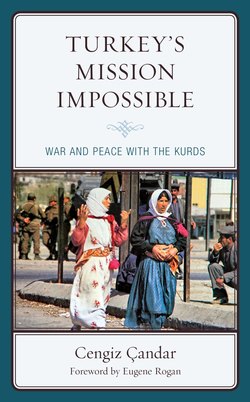Читать книгу Turkey’s Mission Impossible - Cengiz Çandar - Страница 10
На сайте Литреса книга снята с продажи.
ОглавлениеNotes on Spelling and Transliteration
I have translated all of the quotations that I used in the book from Turkish to English. For the Turkish and Kurdish names, I followed modern Turkish spellings for the most part. For instance, since the official name of the city in Turkish is İstanbul, I preferred to use the capital İ, instead of Istanbul as it is written in English. In Turkish, both letters i and ı exist, as do g and ğ. The surname of the president of Turkey is Erdoğan. In the quotations from original English sources, I left it as Erdogan, but whenever I referred to him, I opted for Erdoğan. I applied the same rule for the name Talât in Turkish. In quotations from English-language sources I quoted the name as Talaat, while in my references, I used its Turkish form, Talât. Also for names that include the letters c and ç, as in my own name and surname, I stuck to the modern Turkish spellings instead of clarifying them in English as dj and ch. In some English sources, the name Cavit was spelled as Djavid, and I retained this spelling when quoted. I applied the same rule for the Turkish letter ş. Instead of writing sh, I kept ş as in the name Şahin.
For the Kurdish names, I used the Latin alphabet for the Northern Kurdish language (Kurmanji) developed by Jaladat Bedirkhan (Celadet Bedirhan) in 1931. For the Syrian Kurdish town, I preferred to use Kobanê, instead of writing Kobani as it is written in Turkish. However, there were specific cases like the name of the city of Sulaimaniyah in the Sorani-Kurdish speaking part of the Kurdistan Region of Iraq. Its inhabitants use the Latin transliteration of Sorani-Kurdish, Sulaimani, yet it is registered as Süleymaniye (in Turkish) as a former Ottoman town. Thus, various spellings such as Sulaimaniyah, Sulaimaniya, and Sulaymaniyah are alternately used, as I did in the book.
